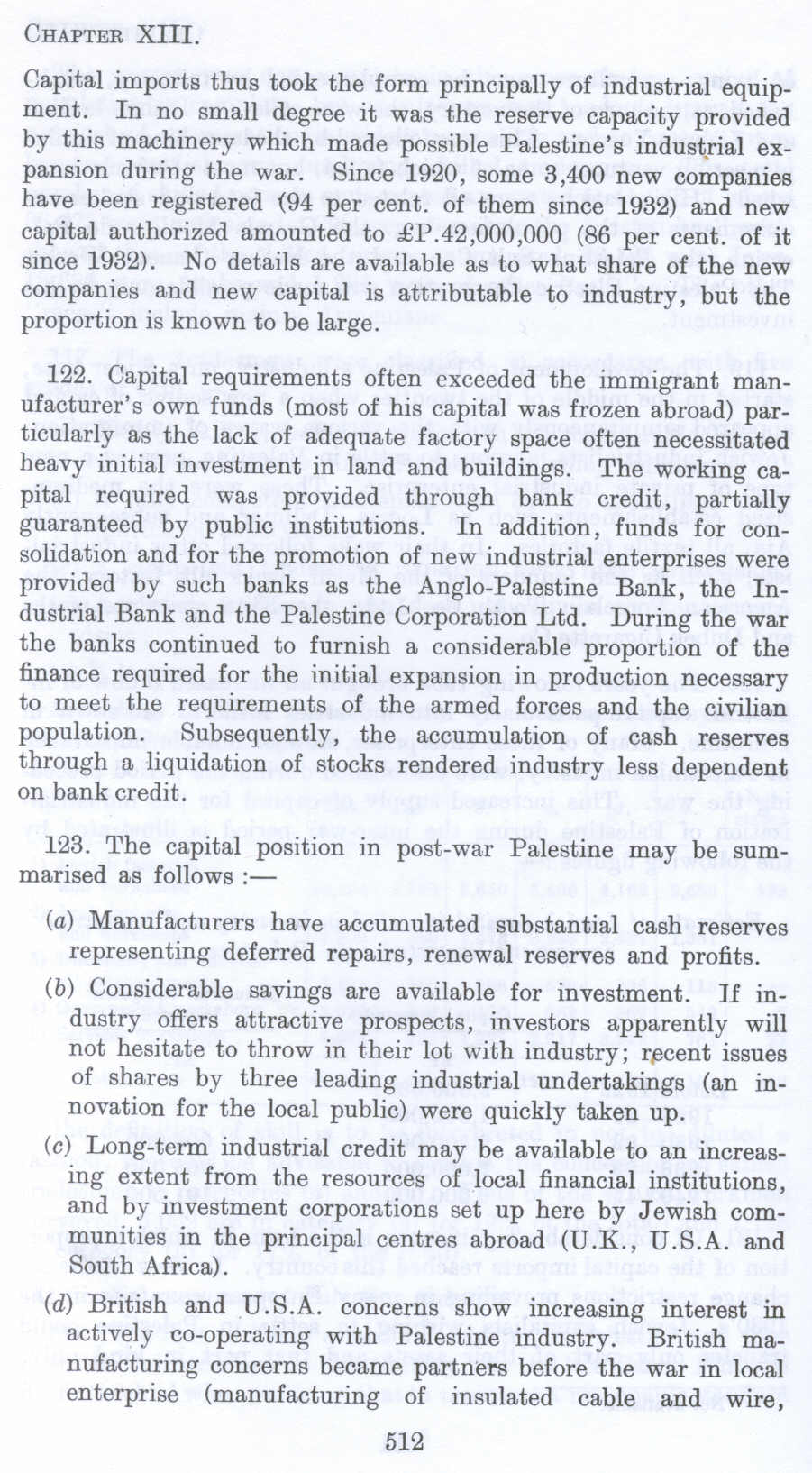| Prev | Next |  |
| Prev | Next |
| PalestineRemembered | About Us | Oral History | العربية | |
| Pictures | Zionist FAQs | Haavara | Maps | |
| Search |
| Camps |
| Districts |
| Acre |
| Baysan |
| Beersheba |
| Bethlehem |
| Gaza |
| Haifa |
| Hebron |
| Jaffa |
| Jericho |
| Jerusalem |
| Jinin |
| Nablus |
| Nazareth |
| Ramallah |
| al-Ramla |
| Safad |
| Tiberias |
| Tulkarm |
| Donate |
| Contact |
| Profile |
| Videos |
British Mandate: A Survey of Palestine: Volume I - Page 512 |
Disclaimer
The above documents, article, interviews, movies, podcasts, or stories reflects solely the research and opinions of its authors. PalestineRemembered.com makes its best effort to validate its contents.


Post Your Comment
*It should be NOTED that your email address won't be shared, and all communications between members will be routed via the website's mail server.
Capital imports thus took the form principally of industrial equipment. In no small degree it was the reserve capacity provided by this machinery which made possible Palestine's industrial expansion during the war. Since 1920, some 3,400 new companies have been registered (94 per cent. of them since 1932) and new capital authorized amounted to £P.42,000,000 (86 per cent. of it since 1932). No details are available as to what share of the new companies and new capital is attributable to industry, but the proportion is known to be large.
122. Capital requirements often exceeded the immigrant manufacturer's own funds (most of his capital was frozen abroad) particularly as the lack of adequate factory space often necessitated heavy initial investment in land and buildings. The working capital required was provided through bank credit, partially guaranteed by public institutions. In addition, funds for consolidation and for the promotion of new industrial enterprises were provided by such banks as the Anglo-Palestine Bank, the Industrial Bank and the Palestine Corporation Ltd. During the war the banks continued to furnish a considerable proportion of the finance required for the initial expansion in production necessary to meet the requirements of the armed forces and the civilian population. Subsequently, the accumulation of cash reserves through a liquidation of stocks rendered industry less dependent on bank credit.
123. The capital position in post-war Palestine may be summarised as follows :-
(a) Manufacturers have accumulated substantial cash reserves representing deferred repairs, renewal reserves and profits.
(b) Considerable savings are available for investment. If industry offers attractive prospects, investors apparently will not hesitate to throw in their lot with industry; recent issues of shares by three leading industrial undertakings (an innovation for the local public) were quickly taken up.
(c) Long-term industrial credit may be available to an increasing extent from the resources of local financial institutions, and by investment corporations set up here by Jewish communities in the principal centres abroad (U.X., U.S.A. and South Africa).
(d) British and U.S.A. concerns show increasing interest in actively co-operating with Palestine industry. British manufacturing concerns became partners before the war in local enterprise (manufacturing of insulated cable and wire,
Page 512